Thomas Mann House Events Archive
August 2025
Wildfire: Resilience, Recovery, and Return
Thomas Mann House (1550 N San Remo Drive, CA 90272)

Language: English ・ By invitation only
Info
The Palisades and Eaton fires are among history's most significant climate-fueled disasters, with communities still struggling to return to normalcy. In response, Climate Resolve, with its expertise in resilience and recovery, is developing a powerful initiative to help communities recover and prepare for future climate-fueled events.
This joint gathering, organized by Climate Resolve and the Thomas Mann House, will bring together people affected by the fires, rebuilding groups, and friends from the community to exchange ideas and plan a resilient future.
Two short panel discussions will focusing on the rebuilding efforts and the future of the Palisades, and address the question on Los Angeles' communities and their role in helping the city's recovery.
Participants
Dr. Marc Futernick, MD, National Director of Sustainability for USACS
Kellie Hawkins, Partner at the public affairs firm EKA
Mary Hopf, Senior Librarian at the Palisades Branch Library
Robert Lempert, principal researcher at RAND and Director of the Frederick S. Pardee Center for Longer Range Global Policy and the Future Human Condition.
Jonathan Parfrey, founder and Executive Director of Climate Resolve
Thomas Aujero Small, CEO of Culver City Forward, 2018 Mayor of Culver City, member of the Mobility Committee of the Urban Land Institute Los Angeles, and member of the Thomas Mann House advisory board
Maryam Zar, civic leader and policy advocate behind the Palisades Recovery Coalition
Partner
This event is organized by Climate Resolve and the Thomas Mann House Los Angeles


Thomas Mann’s Antifascist Radio Addresses: “Listen, Germany!”
Thomas Mann House (1550 N San Remo Drive, CA 90272)

Language: English ・ By invitation only
Info
Join the Thomas Mann House for an engaging discussion on Thomas Mann’s BBC radio addresses delivered during his exile in the United States, featuring German Studies scholar Jeffrey High, Elaine Chen, scholar of German Studies and Comparative Literature, and moderated by Kalani Michell, media studies scholar in the Department of European Languages and Transcultural Studies at the University of California, Los Angeles.
As part of our ongoing programs honoring Thomas Mann’s 150th anniversary, literary scholars Jeffrey High and Elaine Chen, editors of the forthcoming book Thomas Mann’s Antifascist Radio Addresses, 1940–1945 (Camden House), will engage in a conversation about Thomas Mann’s BBC radio speeches, which he delivered from exile in the United States to listeners in Germany, Switzerland and occupied Netherlands and Czechoslovakia during the war. From 1940 until 1945, Thomas Mann pleaded to thousands of listeners to resist the Nazi regime and thus became the most important German voice in exile. His conviction that the “social renewal of democracy” is condition and warrant for its victory seems more relevant than ever.
Upon Hitler’s rise to power in 1933, Nobel-laureate Thomas Mann chose exile, eventually moving to the United States in 1938. An early critic of National Socialism, he gave over 150 public lectures with titles such as “The Coming Victory of Democracy.” From 1940 to 1945, he authored and narrated a series of anti-Nazi radio addresses that were broadcast to Germany by the BBC; German listeners risked severe punishment. Mann’s radio addresses constitute his most sustained contribution to the Allied war effort. In them, he comments on the progress of the war, contrasts fascism with democracy, measures Hitler against Roosevelt, and counters German propaganda with international consensus, lies with facts. After initially encouraging the Germans to resist the Nazi regime, Mann prepares them for the consequences of defeat, but also instills hope in them for future reconciliation with the community of nations.
Today, when democracy is again endangered in much of the world, Mann’s antifascist radio addresses have once again acquired urgency. A new volume by Jeffrey High and Elaine Chen presents English translations of all of Mann’s 58 radio addresses for the first time, with a foreword by Mann’s grandson Frido Mann, an introduction by leading Mann scholar Hans Rudolf Vaget, careful annotations, and a selection of photographs.
This conversation in the living room of the Thomas Mann House, where Mann wrote a significant amount of his radio speeches, will explore the historic circumstances surrounding this collaboration with the BBC, as well as the impact and consequences of Mann’s speeches and what we can learn from them today.
Learn more about the 150th anniversary of Thomas Mann here.
Participants
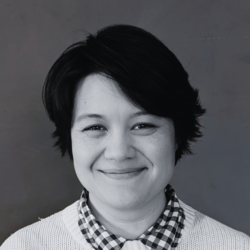
Elaine Chen is a Ph.D. candidate in Germanic Languages and Literatures and Comparative Literature at Harvard University. She holds an M.A. in German Studies from California State University, Long Beach, and was a Fulbright Combined Grant recipient in Salzburg, Austria. Her research focuses on the intersections of literature, exile, and political resistance, particularly in the works of Thomas Mann, Stefan Zweig, and Heinrich von Kleist. She has co-edited and contributed to multiple scholarly volumes and received the 2021 Kleist-Gesellschaft Award for Best Student Essay.
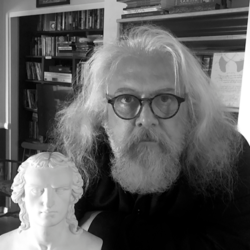
Jeffrey L. High earned his Ph.D. from the University of Massachusetts, Amherst, and is a professor of German Studies and Comparative and World Literature at California State University, Long Beach. He has also served as a Guest Professor at Portland State University’s German Summer School of the Pacific. His research explores the works of Schiller, Kleist, and Thomas Mann, as well as literary responses to political and social change. High has authored and edited numerous academic works and has received multiple awards for his excellence in teaching, advising, and scholarly mentorship at CSULB.

Kalani Michell is an Assistant Professor in the Department of European Languages and Transcultural Studies at UCLA. She previously taught at Goethe University Frankfurt and was a postdoctoral fellow with the research collective Configurations of Film. Her research spans film and media theory, sound studies, and media historiography. She is currently completing her monograph, Media Among Themselves: Unboxing Audiovisual Media from the 1960s and 1970s, and has published on topics including German cinema, intermediality, and the materiality of artistic production. Her work has appeared in CineAction, New German Critique, liquid blackness, and other scholarly publications.
Partner
This event is part of Mann 2025: 150 years of Thomas Mann

Bridging Physical Barriers: Inclusion at the Nexus of Robotics, Architecture, and Art
Thomas Mann House (1550 N San Remo Drive, CA 90272)

Language: English ・ By invitation only
Info
Join us for an insightful evening with Thomas Mann Fellow Robert Riener, Professor for Health Sciences and Technology at the ETH Zurich. After a series of short presentations by acclaimed researchers, he will facilitate a conversation on the future of inclusion at the intersection of physical space, movement, and assistive technology.
How can technology, design, and the arts come together to create spaces and systems that are truly inclusive? This interdisciplinary podium discussion explores how we can bridge not only physical barriers, but also disciplinary divides—uniting perspectives from robotics, architecture, rehabilitation, and performance to imagine new pathways toward accessibility and inclusion. By combining technical innovation with human-centered design and artistic insight, we can develop environments and technologies that respond more fully to the diverse needs of all users—including people with impairments.
Professionals from a range of fields—architecture, engineering, healthcare, the arts, and beyond—will take part in a shared exploration of how inclusion can be rethought at the intersection of physical space, movement, and assistive technology.
During his time at the Thomas Mann House, Robert Riener researches current technological trends in the field of AI and robotics, and their potential positive and negative effects on individuals with or without disabilities and on society as a whole. His project is to foster a dialogue about the appropriate use of new technologies in our society.
Participants
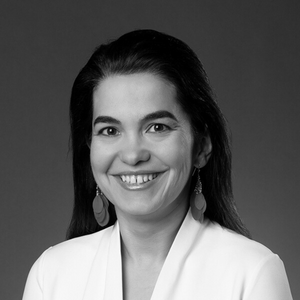
Prof. Burçin Becerik-Gerber (USC) is a pioneer in Human-Building Interaction. Her research explores responsive and adaptive environments that center the human experience, advancing how architecture and engineering serve diverse users.
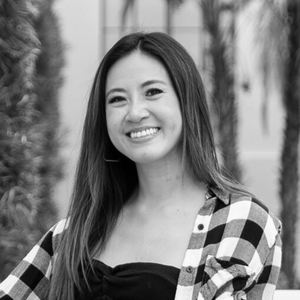
Natalie Fung (USC graduate) is a production manager and data analyst, as well as a wheelchair user and advocate for accessibility. She brings personal and professional insight into how inclusive design directly affects quality of life and agency.

Prof. David Reinkensmeyer (UC Irvine) is a leading researcher in neuro-rehabilitation and robotics. His work focuses on developing "rehabilitators"—mechatronic devices that support recovery after neurological injuries like stroke or spinal cord injury.

Prof. Dr. Robert Riener studied mechanical engineering at the Technical University of Munich (TUM) and the University of Maryland and received his doctorate from TUM in 1997. After his postdoctoral studies at TUM and the Polytechnic of Milan, Robert Riener habilitated at TUM in 2003. He was subsequently appointed to ETH Zurich, where he was promoted to full professor in 2010. Riener develops therapy and assistance devices for people with restricted mobility. He founded the CYBATHLON to facilitate a social dialogue about inclusion.
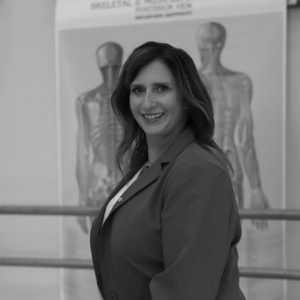
Prof. Kelli Sharp (UC Irvine), Chair of the Department of Dance and co-Vice Chair for Research in Physical Medicine and Rehabilitation, merges dance science with clinical research to improve movement education, therapy, and health across populations.




